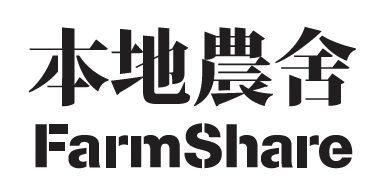Description
LoCoFARMS 本地種植

🚚 The fastest delivery time : 2-4 day delivery.
🐝 Supplier / Origin : LoCoFARMS 本地種植 / Sha Tau Kok, Hong Kong
🔖 Certification : There are no certified vegetables or organic vegetables. We bring out the characteristics of local crops to create the authentic flavor of "Grown in Hong Kong, Made in Hong Kong"!
🌱 Producer introduction : LoCoFARMS is an innovative food and agriculture brand for Hong Kong’s agricultural products.
We source high-quality seasonal produce from local eco-friendly farms, develop unique new recipes, and make each product by hand without additives. We specialize in handmade drinks, original sauces and naturally fermented foods. We will also launch limited seasonal products from time to time, allowing you to experience the local flavors of the four seasons on your tongue.
Manufacturer:
Shop 4C, Block 19, Sha Tau Kok Chuen, New Territories, Hong Kong
LICENSE NO.: 2996802961
🛍 Product Information :
The recent controversy surrounding the Liao Ma Kee fermented bean curd sparked discussion about "Made in Hong Kong." With Mid-Autumn Festival just around the corner, our customers are always looking for mooncakes made in Hong Kong. Locally grown four-color mooncakes are truly 100% locally made, with lotus seeds harvested in Liantang, lotus paste made, and mooncakes produced in Lychee Pot.
LoCoFARMS is a relatively new local agricultural brand that has consistently championed the use of Hong Kong-grown produce, such as ginger, lotus seeds, turmeric, peanuts, roselle, radish, and lemons. Last year, the brand launched a small-scale, pandan-infused lotus seed mooncake using a small amount of lotus seeds from the Lai Chi Wo Nature Management Agreement Farm. The mooncakes quickly sold out. This year, they're back with a goal of releasing 300 boxes of four-color mooncakes. The pandan-infused lotus seed mooncake features pandan-infused custard filling wrapped with lotus seed paste from Lai Chi Wo.
Pesticide-free, organic, and sustainable farming
To produce lotus seed paste, lotus seeds are essential. Lai Chi Wo Nature Management Agreement Farm, jointly operated by the Hong Kong Countryside Foundation and the Conservancy Society, boasts an approximately 800-square-meter lotus pond, one of the few in Hong Kong producing lotus seeds. It has been operating for over four years. The entire farm and lotus pond are a collaboration between the two organizations. Their mission is to employ nature-friendly farming methods, including pesticide-free organic sustainable farming, with the goal of preserving the biodiversity and habitat of Lai Chi Wo. They later discovered that growing lotus seeds was more suitable.
Because the farm produces only a small quantity of lotus seeds, large-scale production is not feasible. "Local Growing" member Vivian explained that from one kilogram of lotus pods, only about 300 grams of seeds are obtained. Members break open the pods to remove the plump, green seeds, which are then quickly shelled using an automated lotus seed cutter. To make white lotus paste, the thin, white lotus skin must be removed individually by hand. The remaining skin turns reddish-brown after prolonged use or after steaming, affecting the color of the paste. Fresh and older lotus seeds also require the removal of the reddish-brown skin. Removing the skin is a demanding process, as it clings to the lotus flesh and is more challenging than peeling garlic. Each seed takes about 10 seconds to remove. After removing the skin, the lotus seeds are split and the core removed. Steam over low heat until softened. Add a small amount of water, stir to form a paste, and then strain out the residue. Add sugar and camellia oil and stir-fry until smooth and thick. Finally, stir in a small amount of maltose to enhance the sweetness. Remove from heat, let cool, and refrigerate. This local lotus paste has a color and texture similar to off-white mung bean paste. It's not as sticky and oily as traditional lotus paste, but is lighter and less sweet overall, suiting modern tastes for a less sweet and greasy experience.
Lotus paste from Lai Chi Wo is wrapped in a custard-filled pandan juice filling. This filling is then wrapped in a green pandan-flavored pastry, molded, and baked to create the pandan lotus paste mooncake. The pastry is crispy, and the mooncake is distinctly layered. The subtle fragrance of the pandan and the sweetness of the lotus paste complement each other perfectly. Due to the limited lotus seed production, lotus paste made from lotus seeds from Lai Chi Wo is currently mixed with other ingredients to create the mooncake filling. This year, "LoCoFARMS" is releasing four mooncake colors: Taro and Egg Yolk Mooncake, Golden Milk Mooncake, and Purple Taro and Custard Mooncake. Ingredients include turmeric and ginger from Lai Chi Wo, Blue Narcissus cake flour from Kowloon Flour Mill, and salted egg yolks from Kaiyuan Egg Shop.
Ingredients
▌Locally Grown Four-Color Mooncakes
💜 Taro and Egg Yolk Mooncakes
Ingredients: Local taro#, Kowloon Flour Mill Blue Narcissus Cake Flour, unsalted butter, Kaiyuan Egg Bagel with salted egg yolk, sugar, light cream, condensed milk, egg, custard powder
🩷 Taro and Custard Mooncakes
Ingredients: Local taro#, Kowloon Flour Mill Blue Narcissus Cake Flour, unsalted butter, sugar, light cream, condensed milk, Kaiyuan Egg Bagel with salted egg yolk, egg, coconut milk, purple sweet potato flour, milk powder, custard powder
💛Golden Milk Mooncakes
Ingredients: Kowloon Kowloon Flour Mill's Blue Narcissus cake flour, unsalted butter, coconut milk, sugar, egg, light cream, milk, white chocolate, milk powder, custard powder, local turmeric powder#, cinnamon powder, local ginger powder#, nutmeg powder, black pepper*
💚 Pandanus and Lotus Seed Paste Mooncakes
Ingredients: Kowloon Flour Mill's Blue Narcissus cake flour, Lychee Wo pandan#, unsalted butter, coconut milk, Lychee Wo lotus seeds#, sugar, egg, maltose, milk powder, oil, light cream, shredded coconut, custard powder, salt
#Organically grown *Certified organic
▌Net weight
260g (65g x 4)














